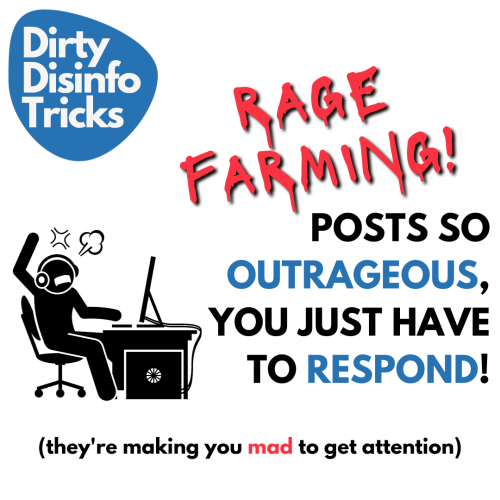The language used by Prime Minister Robert Abela has come under scrutiny recently due to its populist tones and increasing anger directed towards critics, but in recent interviews, his choice of words could be classified as ‘rage farming’, a manipulative tactic used to spark outrage with the ultimate aim of increasing support.
“Capital punishment”, “butchering”, “vindictive”, and “cruel” are weighty words to use when talking about scandal-ridden politicians from one’s party, yet these are the words Abela chose when asked about the possible return to politics of former Gozo minister Justyne Caruana and former Labour MP Rosianne Cutajar.
The prime minister’s vocabulary was carefully curated to elicit a strong emotional response from both party loyalists and critics.
In one interview, Abela described the decision by the former standards commissioner’s report on Justyne Caruana as a “vindictive action she suffered from whoever was interested in butchering her.”
In a separate interview, when talking about Rosianne Cutajar, Abela said that she had been “given capital punishment” and added, “Let us be realistic; she was publicly butchered…”.
Rage farming in political discourse
Rage farming as a term has been used since at least 2022 to describe a way of increasing engagement and support and as a way of attacking opponents through the use of manipulative and inflammatory discourse.
Experts have said the use of rage farming as a tactic is rising among right-wing politicians and those who want to incite offline violence, including verbal assaults and intimidation against political and ideological opponents.
A core feature of rage farming is combining half-truths with blatant lies.
It is no secret that Malta’s fractious public discourse by our politicians is often based on this style of engagement.
The cultivation of anger is a major contributor to a kind of political tribalism or factionalism that, in Malta, we know all too well. Instead of treating one’s opponents as adversaries to be defeated in elections or through rational arguments supported by hard evidence, rage farmers convince their followers that the other side is merely an enemy to be destroyed.
It also forces those targeted by collective rage to defend themselves, thus disrupting their activities that draw attention to the original rage farmer.
A recent example of this is European Parliament President Roberta Metsola using her social media channels to address misleading statements by Labour Party politicians who insinuated she was “calling for war” when referring to an official statement she made earlier in the week to Politico, urging the EU to spend more money on defence to “prepare for any eventuality”.
Local examples of rage farming are easy to find. We can go as far back as when the Shift investigated six of the biggest pro-Joseph Muscat Facebook groups and revealed how these groups were being used to attack critics, political opponents, activists, journalists, and even members of the public.
Posts would be made in the group alluding to scandals or apparent wrongdoing by the individual. This would then be passed onto Labour Party-controlled media, and the subsequent Labour media reports would then be used to bait group members into reacting with outrage, directing their vitriol towards their chosen targets.
In some cases, posting the target in the group, along with enough ‘rage’, was enough to elicit the desired response from members- an attack.
The trend of eliciting anger from party supporters hasn’t stopped. While it takes slightly different forms and targets different people, it is very present but operates under the patronage of Robert Abela instead of Joseph Muscat.

Dirty Disinfo Trick Card by Reality Team. Source: realityteam.org
Rage farming everywhere else
Using anger as part of political propaganda is not a new phenomenon. Still, social media has now allowed this anger to become an infinite and thriving force that has crept into almost every aspect of our lives.
Content creators across social media platforms have found that stirring up anger gets views, and it’s been used since the early days of social platforms to keep users clicking. In an attention-based economy, generating positive or negative engagement is a lucrative digital currency.
This premise was confirmed by Facebook whistleblower Frances Haugen, who revealed in 2021 that the social media giant amplifies divisive content to earn more money.
She explained that it is easier to elicit user responses by presenting them with controversial or hateful content, which drives up engagement and makes them spend longer on the platform, increasing Facebook’s profits.
Rage farming content ranges from harmless but deliberate mistakes or behaviour designed to ignite the comment sections of a social media platform to more harmful tactics, such as those deliberately targeting communities or even companies, often resulting in disruption, harassment and security threats.
Is it all farmed?
It is important to distinguish between rage farming and justified anger. For example, angry reactions to news of government scandals, the squandering of public funds, or social justice are justifiable, expected and grounded in truth.
Rage farming is not based on truth; it deliberately tries to manipulate human emotions and responses through factual and non-factual information. Furthermore, its purpose is not to inform or hold power to account; it is to gain support, loyalty, influence or clicks.
In the case of Abela’s recent outburst, he uses deliberately inflammatory, highly emotive and visual language to divert attention away from the scandals that encompass the individuals, and to redirect it towards those who rightly exposed them.
In other words, if Labour’s propagandists stopped stoking their supporters’ anger against the government’s critics and independent media, those supporters might turn their attention to the real issues.
They might become aware of the extent to which their party is failing them, and that’s the kind of anger that no one in the party is ready, or would be able, to address.













to be used in conjunction with the Straw Man Fallacy:
A straw man fallacy occurs when someone distorts or exaggerates another person’s argument, and then attacks the distorted version of the argument instead of genuinely engaging.